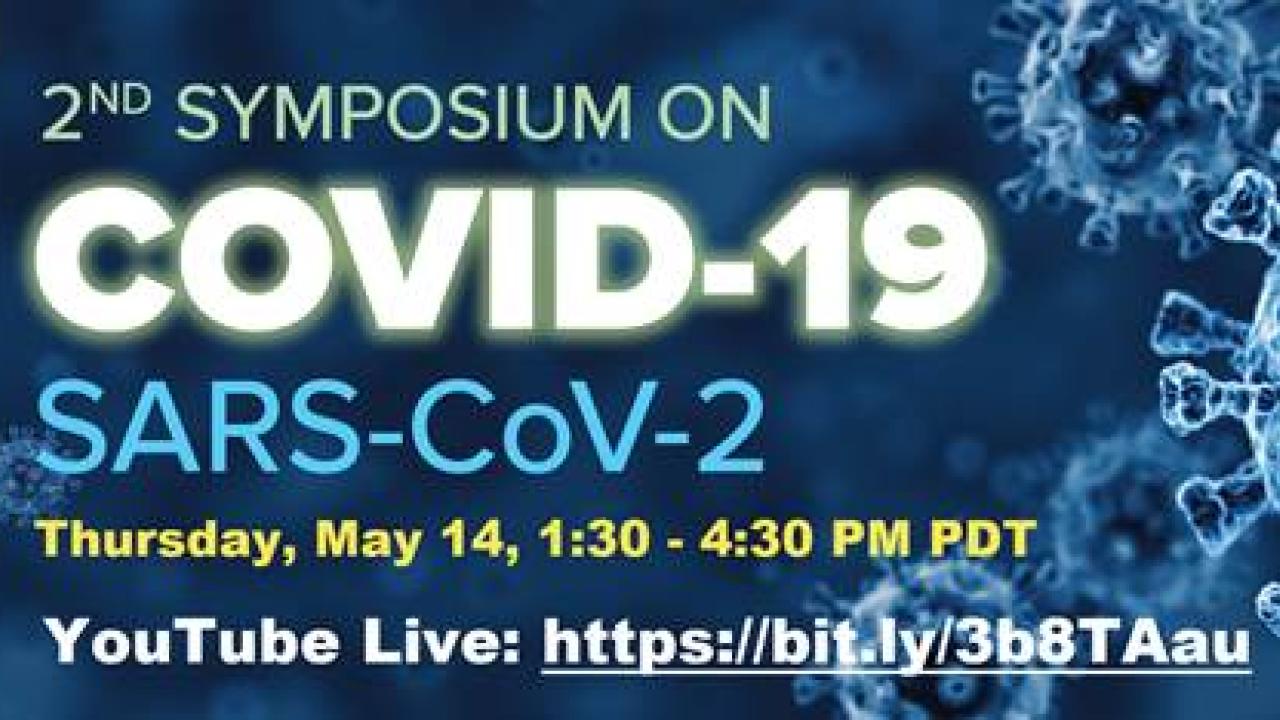
Panel Cuts Through COVID-19 Confusion
UC Davis leaders and researchers gathered virtually May 14 to answer the public’s questions about COVID-19, ranging from the safety of homemade masks to whether children or pets could transmit the virus.
“Sharing information from the experts is the best thing we can do for our community in these difficult times,” Leal told viewers on Zoom and YouTube. More than 2,000 people around the world watched live and recorded.
UC President Janet Napolitano opened the session with praise for the efforts of UC health care providers and researchers, calling out UC Davis. “Hard times tend to reveal an institution’s true character,” she said. “The world is witnessing the grace and skill with which the people of UC Davis and the UC Davis Medical Center are continuing to meet this challenge.”
Making progress
UC Davis Health leaders provided updates on research, including the latest findings on how the virus is transmitted, efforts to test antibodies produced by COVID-19 patients, and research on a vaccine and dermal patch that could be delivered by mail.
“Studying what we need to be scared [of], and frankly, what we don’t need to be scared of, is really critical to going back to enjoying our lives and avoiding both contamination and potential transmission of the disease,” said David Lubarsky, vice chancellor of Human health Sciences and CEO of UC Davis Health.
One of many key COVID-19 studies is a test of UC Davis Health employees, for antibodies and whether they offer protection, which could help with vaccine development, he said. This study might eventually be extended to the public.
“We don’t know if antibodies make you immune, what level confers immunity and how long that immunity lasts,” Lubarsky said. “We’re not telling people who have antibodies that they are safe. We need to know more.”
UC Davis has 24 active COVID-19 studies and is pursuing possible treatments on many fronts, including plasma transfusions from blood donors who recovered from COVID-19 used in an effort to boost another patient’s ability to neutralize the virus, said Allison Brashear, dean of the School of Medicine. This approach has a long history of effectiveness in medicine, and Brashear said UC Davis is asking recovered COVID-19 patients to donate blood for the process, if possible.
“This is the way every single survivor can give back,” she said.
Straight answers
Former NASA astronaut Steve Robinson, now a UC Davis professor of mechanical and aerospace engineering, moderated questions that had been submitted in advance. Other questions came in during the program.
Click here to read more about a sampling of these questions and answers.
Watch the video of this symposium below: